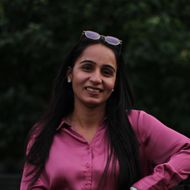Ringing in the New Term

On September 1, campuses across Russia ring in the new academic year with the traditional ‘first bell’—flowers for teachers and welcomes for first‑years—while international students at HSE University share how studies begin in their home countries, from Ghana’s Akwaba week to China’s student club fair, the Democratic Republic of the Congo’s blue-and-white uniforms, and India’s Teachers’ Day.
Knowledge Day is an important day in Russia and some other post-Soviet countries, celebrated every year on September 1. The tradition was formally introduced in the Soviet Union in 1984, but over time it has become more than just the start of lessons: it is a festive occasion for pupils, students, their parents, and teachers.
Throughout the country, schools hold special ceremonies to celebrate the day. The national flag is raised, the anthem is performed, and head teachers and local officials give speeches to welcome the start of studies.
One of the most touching moments is the ‘first bell’: a first-year pupil, carried on the shoulder of a final-year student, rings a small bell to symbolise the opening of the school year.
Pupils usually dress up for the occasion and often prepare songs, dances, or short performances. An important tradition on Knowledge Day is giving flowers to teachers. Russians have a deep love for flowers, and it is no wonder that flower shops can be found on almost every corner in Russian cities.

Shallu Tomar, from India, second-year student of the Population and Development Master’s Programme
In India, the academic calendar differs for schools and universities. Schools usually begin in March or April, while universities begin in July or August.
For me, one of the most cherished childhood memories is of my boarding school in Haryana, where the first day after the break was always filled with joy, prayers, and laughter with friends. In schools, the first day is marked with a strong sense of discipline and togetherness.
There is always a morning assembly, where all students gather, stand in rows, and begin the day with God’s prayer
Teachers often give motivational speeches, and sometimes cultural performances are also organised to mark the beginning of the new academic year. Children come in fresh uniforms, meet their classmates after the break, and feel both excitement and nervousness about new teachers and subjects.
Another important school tradition in India is Teachers’ Day, celebrated on September 5 in honour of Dr Sarvepalli Radhakrishnan. On this day, senior students are given the chance to act as teachers for one day. I had the memorable opportunity to play the role of a teacher at my school.
I dressed up in my mother’s sari as part of a fancy dress tradition, and for the first time, I experienced the feeling of being a teacher
It was unforgettable, as in Indian culture, the role of a teacher is considered as important and respected as that of a guru.

Raissa Mujing, from the Democratic Republic of the Congo, second-year student of the Master’s Programme in Linguistic Theory and Language Description
In my country, the academic year usually begins in September. For schools, the first day is considered a very special event. Children often dress nicely, and parents buy new uniforms—usually blue-and-white—for their children.
At the beginning of the academic year, students generally don’t bring much for their teachers; it is rather towards the end of the year that they give something as a way of thanking the teacher for how the whole academic year has been
On the first day, students line up, and the principal reads out the rules to be followed at school. Even though these rules are often published in the school newsletter, repeating them to the students at the beginning of each year is somewhat obligatory.
At universities, the start of the year is less formal but still exciting. It usually begins in October or November as students meet new classmates and professors.
University students go shopping to look good for the new academic year: it has become a kind of tradition to buy new clothes for the first few days of the beginning of the academic year. As we often jokingly say, we never start a new academic year wearing old clothes
The university often organises an opening ceremony for the academic year, and it is the minister or their representative who usually announces the opening.

Fan Minlan, from China, graduate of the Population and Development Master’s Programme
In my country, the academic year usually starts the same time as in Russia, in September. There’s nothing special about the beginning of academic year actually. But when students enrol in college, parents usually accompany their children to help them settle down. And in the beginning of their first year in college, there is a ceremony to welcome first-years, with various performances.
After that, there is a fair where most of the student clubs set up stands to show themselves and attract new students to join.
It is very common that clubs try all they can to attract new students; they sing and dance, give out gifts, even make delicious food, provide drinks
This is a very lively and interesting event. I still remember when I started college, I was attracted to so many clubs that in the end of the day I joined more than five student clubs—in the end, I only had time to take part in the events of one club.

Celestina Adu, from Ghana, second-year student of the Master’s programme in Economics and Economic Policy
I graduated from Kwame Nkrumah University of Science and Technology (KNUST). There, school life starts with Akwaba week (the week of welcoming). Students wear hall t-shirts, especially University Hall (Kantaga) and Unity Hall (Conti). Every Friday from around 5 pm there is a ‘moral session’ with intense chanting by the two halls. During the first year, there are inter-hall competitions such as football, debate, and hall week celebration (which is attended by top artists), and there are a lot of festivities with plenty of delicacies and drinks.
There is also a thanksgiving service for first-year students, as they worship God
Before school goes on break every semester, there is a programme called School of Prayer during which top gospel ministers come to guide the spiritual growth of the students.
See also:
‘Keep Working, Keep Publishing—Consistency Matters’
Ziyuan Zhu, from Beijing, China, is an international PhD student at the Institute for Public Administration and Governance at HSE University in Moscow. In this interview with the HSE News Service, Ziyuan talks about how studies can influence one’s outlook on life, comparing public service models in different countries, and why being a Chinese student in Russia is advantageous in research.
HSE University–St Petersburg Signs Three Cooperation Agreements with Leading Indian Universities
A delegation from HSE University–St Petersburg has signed cooperation agreements with key educational institutions in India during a visit to the country. Among the projects are new programmes for academic exchange and mobility.
Under a Blooming Magnolia: How Russian and Chinese Scientists Create Solar Cells of the Future
Schola continues to introduce the winners of the International Academic Cooperation competition. In today's issue, Professor Andrey Vasenko, Deputy Head of the Scientific and Educational Laboratory of Quantum Nanoelectronics at Tikhonov Moscow Institute of Electronics and Mathematics (MIEM), speaks about the joint project between his laboratory and the Peking University research team— ‘Engineering of highly efficient and stable perovskite solar cells.’
Graduate School of Business MBA Students Take Part in Offsite Module in China
MBA students of the HSE Graduate School of Business HSHSE have recently completed the international component of their studies at the School of Economics and Management at Tsinghua University. The module focused on developing business through innovation. The participants discussed the impact of new technologies on corporate structures and visited companies operating in robotics and renewable energy.
‘India Can Be Very Colourful and Festive’
HSE University's Faculty of World Economy and International Affairs hosted a celebration of the Indian holiday Diwali, which symbolises the triumph of light over darkness and good over evil. Guests were immersed in the authentic atmosphere of India, learning about Diwali’s traditions and symbols, participating in national dances, and taking part in mehendi workshops, rangoli art with rice, and paper lanterns making. The event was organised as part of the ‘Holidays of the Peoples of the East’ project.
Meeting with Xinhua Delegation: Discussion on Contemporary Journalism at HSE
On October 22, 2025, HSE University hosted an open meeting with representatives of the Chinese news agency Xinhua, led by Sun Zhiping, Chief of Staff to the Director General. Participants discussed current challenges in journalism and the operational specifics of news agencies in today’s media landscape. Many students took the opportunity to ask questions and practise speaking Mandarin. The visit was organised by the Faculty of World Economy and International Affairs in collaboration with the HSE Institute of Media and the TASS news agency.
HSE Participates in Conference on International Exchange of Professionals in China
From October 21 to 24, 2025, the 23rd Conference on International Exchange of Professionals took place in Shanghai and Beijing, bringing together more than 7,000 scientists and experts from around the world. HSE University was represented by Ivan Arzhantsev, Dean of the Faculty of Computer Science, and Vasily Gromov, Head of the Laboratory for Semantic Analysis of the Centre for Language and Semantic Technologies.
HSE University–St Petersburg to Create Joint Continuing Education Programmes with Indian Business School
A delegation from the Institute for Continuing Professional Education at HSE University–St Petersburg discussed new cooperation formats with the Indian Institute of Management Indore (India). The partnership opens up new opportunities for HSE University–St Petersburg to create interdisciplinary programmes with strong practical elements and immersion in the business cultures of the Asian region.
‘Everyone Who Sees HSE University on My CV Says: “You Must Be So Smart!”’
On October 9–10, the first-ever HSE International Alumni Reunion brought together graduates from various cohorts and programmes—now working in Russia and abroad—along with representatives of HSE University and its industry partners. The event included a tour of the campus, a business game, and a cultural festival. The participants exchanged experiences, reflected on their career paths, and discussed labour market challenges.
HSE University–St Petersburg and Indian Institute of Management to Launch Joint Seminar for PhD Students
Galina Shirokova, Director of the Strategic Entrepreneurship Centre at HSE University–St Petersburg and Doctor of Economic Sciences, held a series of seminars for students of the Indian Institute of Management in Indore (IIM—Indore). Plans are also underway to launch a joint educational project.


